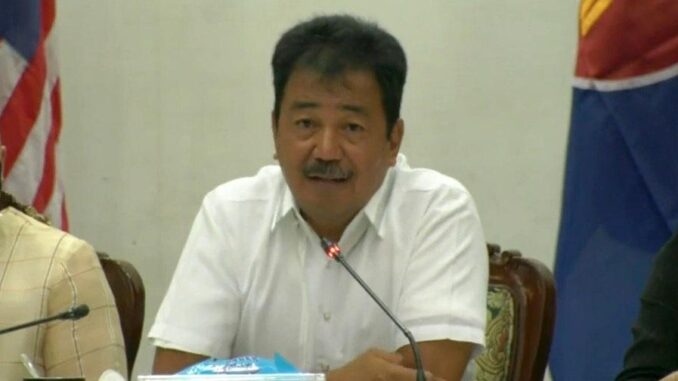
More higher education students cited mental health issues as a reason for dropping out more than academic difficulty, Commission on Higher Education Chairperson Propero “Popoy” de Vera told a Senate panel on Tuesday.
This was revealed at the Senate finance subcommittee’s hearing on CHED’s proposed P31.6 billion budget for 2025 when Senator Joel Villanueva inquired on the “alarming number” of college students who dropped out in previous years.
Villanueva presented data which showed that the attrition rate in 2021 was at 40.6 percent while 39.2 was noted in 2022.
For Class 2022, Villanueva, citing CHED’s data, showed that seven of the 17 regions in the country had over 50 percent attrition rate, the highest of which was in the Bangsamoro Autonomous Region in Muslim Mindanao with 93.4 percent.
De Vera explained that the data from 2021, 2022 and 2023 are a “little different” because of the COVID-19 pandemic.
But after the pandemic, De Vera explained that the latest attrition rate is now in the “high 20s” which he said is “actually comparable with other countries in the region and the world.”
Based on CHED’s survey, the top five reasons cited by students who stopped their education are:
- Financial difficulties, including costs on transportation, food, internet and graduation fees.
- Family problem
- Relocation
- Mental health concerns
- Academic difficulty
“There’s an emerging reason which is medical mental health concerns that we did not expect this previously [and] it’s coming out [now] and then panglima lang ‘yung [ranked fifth is] academic difficulty,” De Vera said.
“Mental health concern is higher reason for stopping than academic difficulty. It is not really because they are having difficulty studying, but their mental health has really been affected,” he added.
According to De Vera, CHED is currently implementing two projects related to mental health.
“We are working with Miriam College to roll out the training of guidance counselors in schools and also the support staff on how to identify mental health concerns and we have a project with Unilab because they have a tool kit already on mental health which we are rolling out to schools,” he said.
Asked on the ratio of guidance counselors to students, De Vera said that “it is not very good” but their numbers are “better” compared to that of in the basic and secondary education.
De Vera then appealed to the senators to amend the law that requires a master degree before a prospective guidance counselor could take a licensure examination.
Aside from that, De Vera said that there are fewer guidance counselors in higher education because once they get the position, there will be “no more career progression.”
“What is happening is that the people who have guidance counselor degrees, they start off as guidance counselors and then they move to become faculty members…then they can get promoted as professors from assistant to full[-time]. They stop becoming guidance counselors because they are now regular faculty members,” he said.
“What [state universities and colleges] do is they deload these people and make them part-time guidance counselors. SUCs are trying to find imaginative ways of continuing guidance counseling but the salary grade is quite low and the career progression is basically non-existent because it’s an administrative position. So aalis ang guidance counselor,” he said.
[The guidance counselor will just resign.]
— RSJ, GMA Integrated News





Be the first to comment